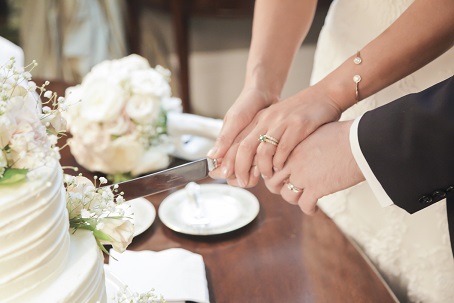When planning a wedding budget, it’s easy to feel overwhelmed or get confused on who should get a tip. With so many vendors involved in helping you execute your perfect day, tipping for excellent service and exceptional work is a necessary part of your planning process.

Use the guidelines below to help you properly acknowledge everyone involved in making your day memorable.
Carefully Review Each Contract
First, see if your agreement with your caterer or other vendors includes a gratuity or a tipping guide. Tipping will be a case-by-case judgment. You want to ensure you don’t tip twice to some vendors and not at all to others.
You May Tip a Business Owner
Historically, business owners do not expect a tip. However, small businesses are often a one-person show and hire extra help for significant events. Thoughtfully consider rewarding their efforts with a tip if they go above and beyond.
Recruit a Tipping Assistant
Because most tipping will take place at the event, designate the task to your best man, maid of honor or a trusted family member. Place cash in envelopes ahead of time. That way, your helper can distribute them after the event.
Avoid Tip Jars
Some service providers such as DJs and bartenders may plan to place a tip jar at your reception. As the host, it is your responsibility to provide a gratuity. Guests should not have to tip on food and beverages you are serving.
Caterers
Often, gratuity for servers is included in the quote for the event. If not, plan on providing 15 to 20 percent of the total catering bill to the manager. Make sure the manager distributes the gratuity to servers and other staff involved in your event. You could also opt to give it to them personally after the reception.
Clergy or Officiant
Certainly, it’s always polite to show gratitude to the clergy who presided over the ceremony. A donation of $100 would be a fair honorarium. While some people may want to give much more or donate another portion to the church or synagogue, it’s always in good form to acknowledge the officiant. If a civil officiant presides over your ceremony at the courthouse, the law prohibits gratuity.
Hair Stylists and Makeup Artists
Expect to provide the same gratuity you would give at any salon—15 to 25 percent—even though you may already be paying more for the occasion than you would at a standard salon appointment. Give a little more for specialized care, such as last-minute touch-ups or emergencies.
Wedding DJ
Music is an essential part of the wedding reception. For the guy or girl who kept the party going and the wedding fun flowing into the night, 15-20 percent of their cost is in order.
Photographers and Videographers
Many in this category are independent contractors who own their businesses, and a tip is optional. However, an additional $30 to $100 is appropriate for a job well done.
Delivery People
For staff delivering flowers, cake, chairs, and other necessities, tip $5-10, depending on the service they provide. Are they unloading chairs for a few hours or merely dropping off a cake? The effort will determine the tip.
Transportation Providers
Tip as you would a taxi driver. 15-20 percent of the total bill is appropriate if it’s not covered in the contract.
Venue Staff
Ask ahead how staff, banquet manager, chef, servers, including bartenders, parking attendants, bathroom attendants and coat check workers will be compensated. The venue may include it in their contract. Otherwise, you can tip 15 to 20 percent divided among the individuals who are working. Be sure workers are instructed not to accept tips from guests.
Wedding Planners
Most planners don’t expect or rely on gratuity for their income. However, you may want to acknowledge them for extraordinary service. Anything from 10 to 25 percent or a check for $300 to $500 is appropriate, depending on the services he or she provided.

